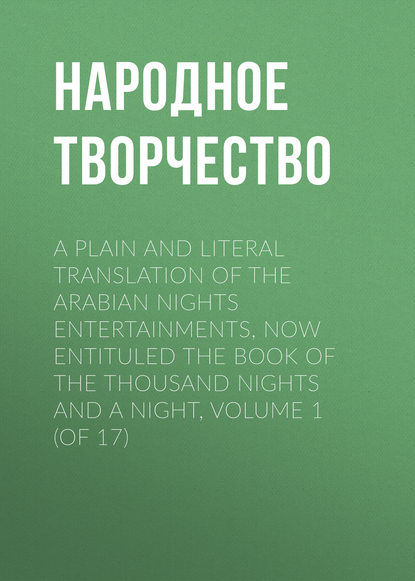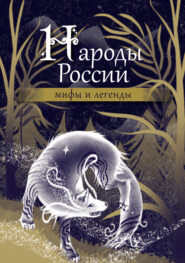По всем вопросам обращайтесь на: info@litportal.ru
(©) 2003-2024.
✖
A plain and literal translation of the Arabian nights entertainments, now entituled The Book of the Thousand Nights and a Night, Volume 1 (of 17)
Настройки чтения
Размер шрифта
Высота строк
Поля
312
Arab. "Kursi," a stool of palm-fronds, etc., ×-shaped (see Lane's illustration, Nights i., 197), before which the reader sits. Good Moslems will not hold the Holy Volume below the waist nor open it except when ceremonially pure. Englishmen in the East should remember this, for to neglect the "Adab al-Kúran" (respect due to Holy Writ) gives great scandal.
313
Mr. Payne (i. 148) quotes the German Zuckerpüppchen.
314
The Persian poets have a thousand conceits in praise of the "mole," (Khál or Shámah) for which Hafiz offered "Samarkand and Bokhara" (they not being his, as his friends remarked). Another "topic" is the flight of arrows shot by eyelashes.
315
Arab. "Suhá" a star in the Great Bear introduced only to balance "wushát"=spies, enviers, enemies, whose "evil eye" it will ward off.
316
In Arab tales beauty is always "soft-sided," and a smooth skin is valued in proportion to its rarety.
317
The myrtle is the young hair upon the side-face.
318
In other copies of these verses the fourth couplet swears "by the scorpions of his brow" i. e. the accroche-cœurs, the beau-catchers, bell-ropes or "aggravators," as the B.P. calls them. In couplet eight the poet alludes to his love's "Unsur," or element, his nature made up of the four classicals, and in the last couplet he makes the nail-paring refer to the moon not the sun.
319
This is regular formula when speaking of Guebres.
320
Arab. "Faráiz"; the orders expressly given in the Koran which the reader will remember, is Uncreate and Eternal. In India "Farz" is applied to injunctions thrice repeated; and "Wájib" to those given twice over. Elsewhere scanty difference is made between them.
321
Arab. "Kufr"=rejecting the True Religion, i. e. Al-Islam, such rejection being "Tughyán" or rebellion against the Lord. The "terrible sound" is taken from the legend of the prophet Sálih and the proto-historic tribe of Thámúd which for its impiety was struck dead by an earthquake and a noise from heaven. The latter, according to some commentators, was the voice of the Archangel Gabriel crying "Die all of you" (Koran, chapts. vii. xviii., etc.). We shall hear more of it in the "City of many-coloured Iram." According to some, Salih, a mysterious Badawi prophet, is buried in the Wady al-Shaykh of the so-called Sinaitic Peninsula.
322
Yet they kept the semblance of man, showing that the idea arose from the basaltic statues found in Hauranic ruins. Mohammed in his various marches to Syria must have seen remnants of Greek and Roman settlements; and as has been noticed "Sesostris" left his mark near Meccah. (Pilgrimage iii. 137).
323
Arab. "Shuhadá"; highly respected by Moslems as by other religionists; although their principal if not only merit seems as a rule to have been intense obstinacy and devotion to one idea for which they were ready to sacrifice even life. The Martyrs-category is extensive including those killed by falling walls; victims to the plague, pleurisy and pregnancy; travellers drowned or otherwise lost when journeying honestly, and chaste lovers who die of "broken hearts" i. e. impaired digestion. Their souls are at once stowed away in the crops of green birds where they remain till Resurrection Day, "eating of the fruits and drinking of the streams of Paradise," a place however, whose topography is wholly uncertain. Thus the young Prince was rewarded with a manner of anti-Purgatory, a preparatory heaven.
324
Arab. "Su 'ubán: " the Badawin give the name to a variety of serpents all held to be venomous; but in tales the word, like "Tannín." expresses our "dragon" or "cockatrice."
325
She was ashamed to see the lady doing servile duty by rubbing her feet. This massage, which B. de la Brocquière describes in 1452 as "kneading and pinching," has already been noticed. The French term is apparently derived from the Arab. "Mas-h."
326
Alluding to the Most High Name, the hundredth name of God, the Heb. Shem hamphorash, unknown save to a favoured few who by using it perform all manner of miracles.
327
i. e. the Mediterranean and the Indian Ocean.
328
i. e. Settled by the Koran.
329
The uglier the old woman the better procuress she is supposed to make. See the Santa Verdiana in Boccaccio v., 10. In Arab. "Ajuz" (old woman) is highly insulting and if addressed to an Egyptian, whatever be her age she will turn fiercely and resent it. The polite term is Shaybah (Pilgrimage iii., 200).
330
The four ages of woman, considered after Demosthenes in her three-fold character, prostitute for pleasure, concubine for service and wife for breeding.
331
Arab. "Jilá" (the Hindostani Julwa)=the displaying of the bride before the bridegroom for the first time, in different dresses, to the number of seven which are often borrowed for the occasion. The happy man must pay a fee called "the tax of face-unveiling" before he can see her features. Amongst Syrian Christians he sometimes tries to lift the veil by a sharp movement of the sword which is parried by the women present, and the blade remains entangled in the cloth. At last he succeeds, the bride sinks to the ground covering her face with her hands and the robes of her friends: presently she is raised up, her veil is readjusted and her face is left bare.
332
Arab. "Ishá"=the first watch of the night, twilight, supper-time, supper. Moslems have borrowed the four watches of the Romans from 6 (a. m. or p. m.) to 6; and ignore the three original watches of the Jews, even, midnight and cockcrow (Sam. ii. 19, Judges vii. 19, and Exodus xiv. 24).
333
A popular Arab hyperbole.
334
Arab. "Shakáik al-Nu'umán," lit. the fissures of Nu'uman, the beautiful anemone, which a tyrannical King of Hirah, Nu'uman ibn Al-Munzir, a contemporary of Mohammed, attempted to monopolize.
335
Arab. "Andam"=here the gum called dragon's blood; in other places the dye-wood known as brazil.
336
I need hardly say that in the East, where bells are unused, clapping the hands summons the servants. In India men cry "Quy hye" (Koi hái?) and in the Brazil whistle "Pst!" after the fashion of Spain and Portugal.
Arab. "Kursi," a stool of palm-fronds, etc., ×-shaped (see Lane's illustration, Nights i., 197), before which the reader sits. Good Moslems will not hold the Holy Volume below the waist nor open it except when ceremonially pure. Englishmen in the East should remember this, for to neglect the "Adab al-Kúran" (respect due to Holy Writ) gives great scandal.
313
Mr. Payne (i. 148) quotes the German Zuckerpüppchen.
314
The Persian poets have a thousand conceits in praise of the "mole," (Khál or Shámah) for which Hafiz offered "Samarkand and Bokhara" (they not being his, as his friends remarked). Another "topic" is the flight of arrows shot by eyelashes.
315
Arab. "Suhá" a star in the Great Bear introduced only to balance "wushát"=spies, enviers, enemies, whose "evil eye" it will ward off.
316
In Arab tales beauty is always "soft-sided," and a smooth skin is valued in proportion to its rarety.
317
The myrtle is the young hair upon the side-face.
318
In other copies of these verses the fourth couplet swears "by the scorpions of his brow" i. e. the accroche-cœurs, the beau-catchers, bell-ropes or "aggravators," as the B.P. calls them. In couplet eight the poet alludes to his love's "Unsur," or element, his nature made up of the four classicals, and in the last couplet he makes the nail-paring refer to the moon not the sun.
319
This is regular formula when speaking of Guebres.
320
Arab. "Faráiz"; the orders expressly given in the Koran which the reader will remember, is Uncreate and Eternal. In India "Farz" is applied to injunctions thrice repeated; and "Wájib" to those given twice over. Elsewhere scanty difference is made between them.
321
Arab. "Kufr"=rejecting the True Religion, i. e. Al-Islam, such rejection being "Tughyán" or rebellion against the Lord. The "terrible sound" is taken from the legend of the prophet Sálih and the proto-historic tribe of Thámúd which for its impiety was struck dead by an earthquake and a noise from heaven. The latter, according to some commentators, was the voice of the Archangel Gabriel crying "Die all of you" (Koran, chapts. vii. xviii., etc.). We shall hear more of it in the "City of many-coloured Iram." According to some, Salih, a mysterious Badawi prophet, is buried in the Wady al-Shaykh of the so-called Sinaitic Peninsula.
322
Yet they kept the semblance of man, showing that the idea arose from the basaltic statues found in Hauranic ruins. Mohammed in his various marches to Syria must have seen remnants of Greek and Roman settlements; and as has been noticed "Sesostris" left his mark near Meccah. (Pilgrimage iii. 137).
323
Arab. "Shuhadá"; highly respected by Moslems as by other religionists; although their principal if not only merit seems as a rule to have been intense obstinacy and devotion to one idea for which they were ready to sacrifice even life. The Martyrs-category is extensive including those killed by falling walls; victims to the plague, pleurisy and pregnancy; travellers drowned or otherwise lost when journeying honestly, and chaste lovers who die of "broken hearts" i. e. impaired digestion. Their souls are at once stowed away in the crops of green birds where they remain till Resurrection Day, "eating of the fruits and drinking of the streams of Paradise," a place however, whose topography is wholly uncertain. Thus the young Prince was rewarded with a manner of anti-Purgatory, a preparatory heaven.
324
Arab. "Su 'ubán: " the Badawin give the name to a variety of serpents all held to be venomous; but in tales the word, like "Tannín." expresses our "dragon" or "cockatrice."
325
She was ashamed to see the lady doing servile duty by rubbing her feet. This massage, which B. de la Brocquière describes in 1452 as "kneading and pinching," has already been noticed. The French term is apparently derived from the Arab. "Mas-h."
326
Alluding to the Most High Name, the hundredth name of God, the Heb. Shem hamphorash, unknown save to a favoured few who by using it perform all manner of miracles.
327
i. e. the Mediterranean and the Indian Ocean.
328
i. e. Settled by the Koran.
329
The uglier the old woman the better procuress she is supposed to make. See the Santa Verdiana in Boccaccio v., 10. In Arab. "Ajuz" (old woman) is highly insulting and if addressed to an Egyptian, whatever be her age she will turn fiercely and resent it. The polite term is Shaybah (Pilgrimage iii., 200).
330
The four ages of woman, considered after Demosthenes in her three-fold character, prostitute for pleasure, concubine for service and wife for breeding.
331
Arab. "Jilá" (the Hindostani Julwa)=the displaying of the bride before the bridegroom for the first time, in different dresses, to the number of seven which are often borrowed for the occasion. The happy man must pay a fee called "the tax of face-unveiling" before he can see her features. Amongst Syrian Christians he sometimes tries to lift the veil by a sharp movement of the sword which is parried by the women present, and the blade remains entangled in the cloth. At last he succeeds, the bride sinks to the ground covering her face with her hands and the robes of her friends: presently she is raised up, her veil is readjusted and her face is left bare.
332
Arab. "Ishá"=the first watch of the night, twilight, supper-time, supper. Moslems have borrowed the four watches of the Romans from 6 (a. m. or p. m.) to 6; and ignore the three original watches of the Jews, even, midnight and cockcrow (Sam. ii. 19, Judges vii. 19, and Exodus xiv. 24).
333
A popular Arab hyperbole.
334
Arab. "Shakáik al-Nu'umán," lit. the fissures of Nu'uman, the beautiful anemone, which a tyrannical King of Hirah, Nu'uman ibn Al-Munzir, a contemporary of Mohammed, attempted to monopolize.
335
Arab. "Andam"=here the gum called dragon's blood; in other places the dye-wood known as brazil.
336
I need hardly say that in the East, where bells are unused, clapping the hands summons the servants. In India men cry "Quy hye" (Koi hái?) and in the Brazil whistle "Pst!" after the fashion of Spain and Portugal.

















